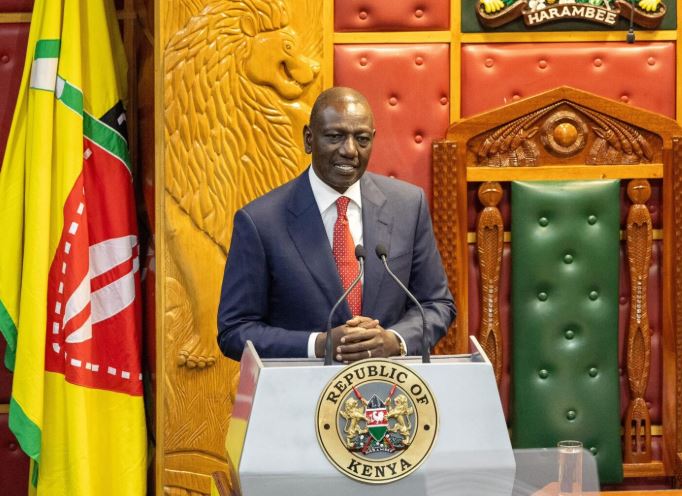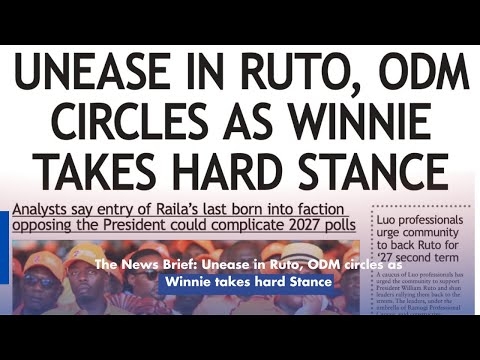

All eyes were on Parliament this week as President William Ruto delivered a high-stakes State of the Nation Address that outlined Kenya’s political and economic direction for the coming years.
In a speech lasting slightly over an hour, the Head of State set out a series of sectoral reforms and presented a national transformation roadmap aimed at positioning Kenya among advanced economies modelled after the Asian Tigers, Singapore, Japan, South Korea, and Malaysia.
According to the President, achieving this shift will require at least Sh5 trillion in long-term investment.
Ruto described the plan as a strategic “roadmap to take Kenya to the next level,” saying the prioritised reforms would guide the country’s aspirations toward first-world status.
His address covered economic stabilisation, national security, education reforms, universal healthcare rollout, infrastructure development, housing programmes, digital transformation and food security.
The President also expressed appreciation to Parliament, praising lawmakers for what he termed their dedication to the national agenda.
He said progress since 2022 had been made possible through cooperation across government branches, noting that legislators had contributed significantly to advancing the reform programme.
“I express profound gratitude to the 13th Parliament for your outstanding contribution, your foresight, consistency, focus and commitment to what is good for Kenya,” Ruto told a joint sitting of the Senate and National Assembly.
“The progress made in the last three years would not have been possible without your legislative agility, principled oversight and commitment to the national interest.”
He added, “When the history of this generation is written, this House will occupy a full and proud chapter. Your decisions are recorded not only in debates or statutes, but in the lived progress of every Kenyan.”
Away from the national address, parliamentary committees were active on issues including labour, security, policing, welfare, and tax reforms.
A notable session was held by the Senate Committee on National Security, Defence and Foreign Relations, which summoned the Social Health Authority (SHA), the National Police Service Commission (NPSC), and the Directorate of Occupational Safety and Health Services (DOSH) to address discrepancies in compensation claims for police officers injured on duty
The committee, chaired by Senator Lelegwe Ltumbesi (Samburu), highlighted differences in the figures presented by the agencies.
Senators questioned how related institutions could report varying data, raising concerns about accuracy and coordination.
"As a committee, we are directing the Social Health Authority, National Police Service Commission and Directorate of Occupational Safety and Health Services to engage and submit a consistent list of claims,” Lelegwe ruled.
Lawmakers reiterated that police officers are considered on duty 24 hours a day, and urged SHA not to rely on technical grounds when reviewing claims, stressing the importance of safeguarding officers’ welfare.
Another key engagement occurred within the Senate Committee on Labour and Social Welfare, chaired by Senator Julius Murgor (West Pokot).
The committee held meetings focused on rising youth unemployment, enforcement of labour rights and the welfare of Kenyans working overseas.
Labour Principal Secretary Shadrack Mwadime told the committee that out of roughly one million young people entering the labour market annually, only 200,000 to 250,000 secure employment.
Murgor raised concerns about cultural preparedness for Kenyans taking up jobs in Saudi Arabia and encouraged the Ministry to intensify pre-departure training to protect workers’ rights and well-being.
In other legislative developments, President Ruto assented to the Provisional Collection of Taxes and Duties (Repeal) Bill, 2025, sponsored by Majority Leader Kimani Ichung’wah.
The Act repeals a 1959 law and aligns Kenya’s tax processes with the 2010 Constitution, which grants Parliament exclusive authority to impose taxes. The Bill passed the National Assembly on November 18, 2025, without amendments.
Ichung’wah said the repeal “cleans up the statute book and affirms Parliament’s exclusive role in imposing taxes through legislation.”














